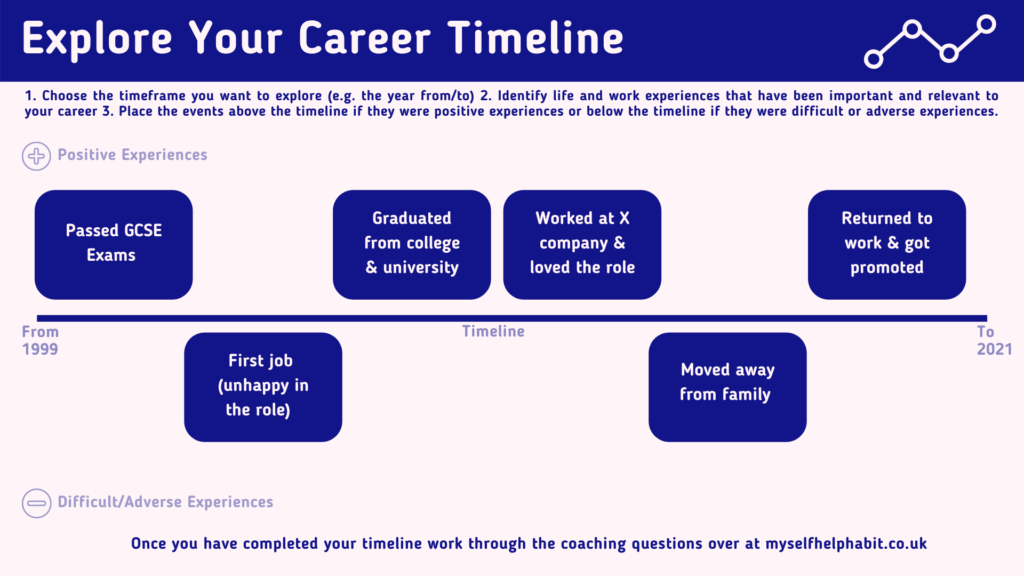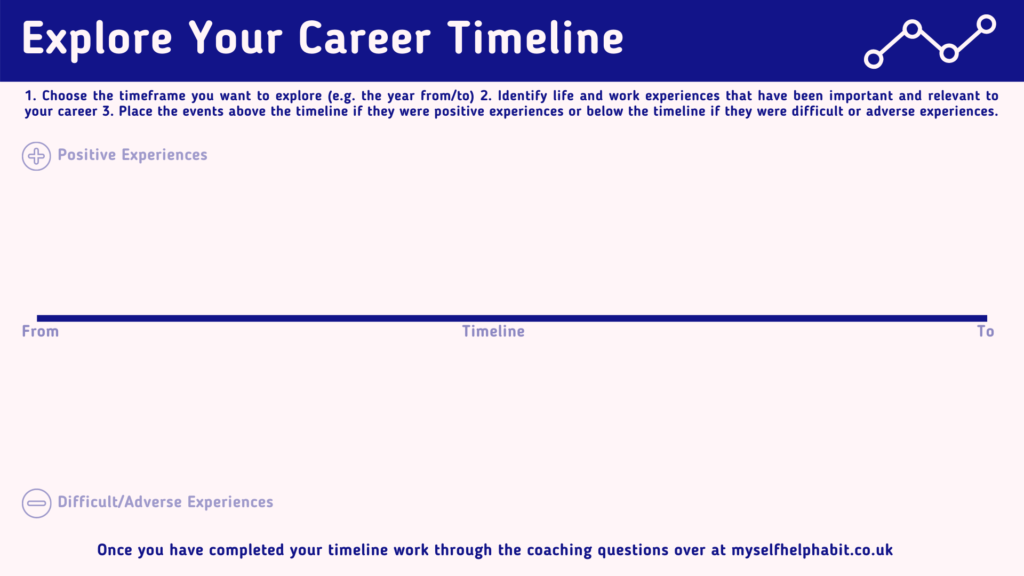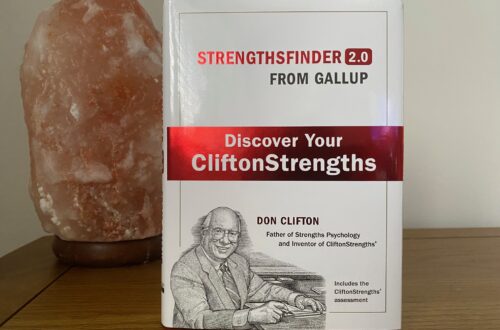
Exploring Your Career Timeline
Now that my role as home school teacher is surplus to requirements, and I am edging ever closer to the end of my postgraduate coaching course, I have been contemplating the next step in my career.
I like to review and reflect upon my career every now and then, especially when I am at some kind of transition in my life. Looking back over the ups and downs in my career provides me with a clearer idea of what I do and do not want in my next role. Reminding myself of the strengths and skills I have developed, my key achievements and proudest moments, my core values, my personality type, etc. helps me to generate desirable options that I can investigate further and ultimately make career decisions that are aligned with who I am.
If you feel that it is time to take stock of where you are in your career and want to give some thought to what you might like to do in the future then have a go at creating your very own career timeline. This activity will enable you to:
- Pinpoint and reflect upon the most significant events or experiences in your life that have influenced your career
- Identify your strengths, personal qualities, interests and values and consider how they will feature in your next move
- Use the awareness that you have gained from your reflections on your past experiences to make a decision on what you want from your career in the future.
As with all activities that involve revisiting past events, do this exercise with compassion for the person you are now and also the person you were back then (hindsight is a wonderful thing after all!) Stop if the activity becomes too distressing and find somebody supportive who will listen to you as you discuss any thoughts or feelings that have come up. This could be a trusted friend/family member, a coach, a counsellor/therapist or get in contact with the Samaritans.
How to create your career timeline
Download the worksheet below or simply draw your timeline on a piece of A4 or A3 paper.
- Choose a timeframe that you would like to focus on for this exercise. You could start from when you left school/college or university or any other point in your life that you think is appropriate (e.g. there may have been an experience in childhood that led to a particular career choice or an interest that you have developed). Consider the events in your personal life and in your career that have occurred from your starting point and all the way up to the present day.
- In chronological order, plot the events or experiences onto your timeline that are most significant to you and relevant to your career so far (you can also note down the year or add in more specific dates if you can remember them!) These events may have been achievements at school/college or university, any paid/unpaid positions you have held, major life events (e.g. moving across or out of the country, getting married, having children etc.), and other noteworthy situations that you have encountered which may have had an impact on the decisions you made about your career.
- Place the event above the timeline if it was something that you consider to be an enjoyable and positive experience (where you may have felt happy, engaged and fulfilled).
- Place the event below the timeline if you deem it to be a particularly difficult or adverse experience.
Here is an example of a career timeline:

Explore your career timeline with these coaching questions
As you look over the events on your career timeline, write down your responses to the following questions:
- What was it about the events that you rated highly that made them so good? Be as detailed and specific as you can in your response to this question. If the event relates to a paid or unpaid role that you held then what exactly was it about the role that you liked (e.g. was it the tasks you were doing, your colleagues/clients/customers, the work environment, contractual arrangements you had, the type/size of company, or the skills that you were using?) What values of yours were being met at the time? What did you learn from these positive experiences?
- What made a particular event meaningful to you and your career?
- What was it about the difficult experiences that made them such a low point? What was going on at the time? As above, if it was a paid or unpaid role then what exactly was it about the role that you disliked and what caused you to leave? What values were not being met or were being challenged at the time? What did you learn from these difficult experiences? How did you overcome or move forward from them?
- Step back and take a look at your career timeline in its entirety, do you see any pattern emerging? Is there any commonality or connection between the events or roles that you considered to be high points and the events or roles that were low points?
- What has influenced the career decisions that you have made and how did you go about making those decisions? What can you learn from this?
- What experiences or lessons are you most grateful for (these can be taken from both the high and the low points)?
- Overall, what have you learned about yourself from looking at your career timeline?
- Now that you have explored your timeline, what do you want from your career in the future?
- What actions are you going to take forward as a result of completing this activity? When are you going to do them? What support and resources might you need to enable you to complete these actions and keep you on track? How will you obtain the support and resources you need?
Mapping out the most important events in your career can bring you a whole new sense of clarity and direction. By creating your timeline you are able to see the highs and lows that have occurred in your career right there in front of you and spot the themes and trends that are coming up for you over and over again. It enables you to stop and consider what this all means for your career going forward, to gather all the lessons that you have learnt from your experiences so far, and feel more confident and informed as you make that next move.





